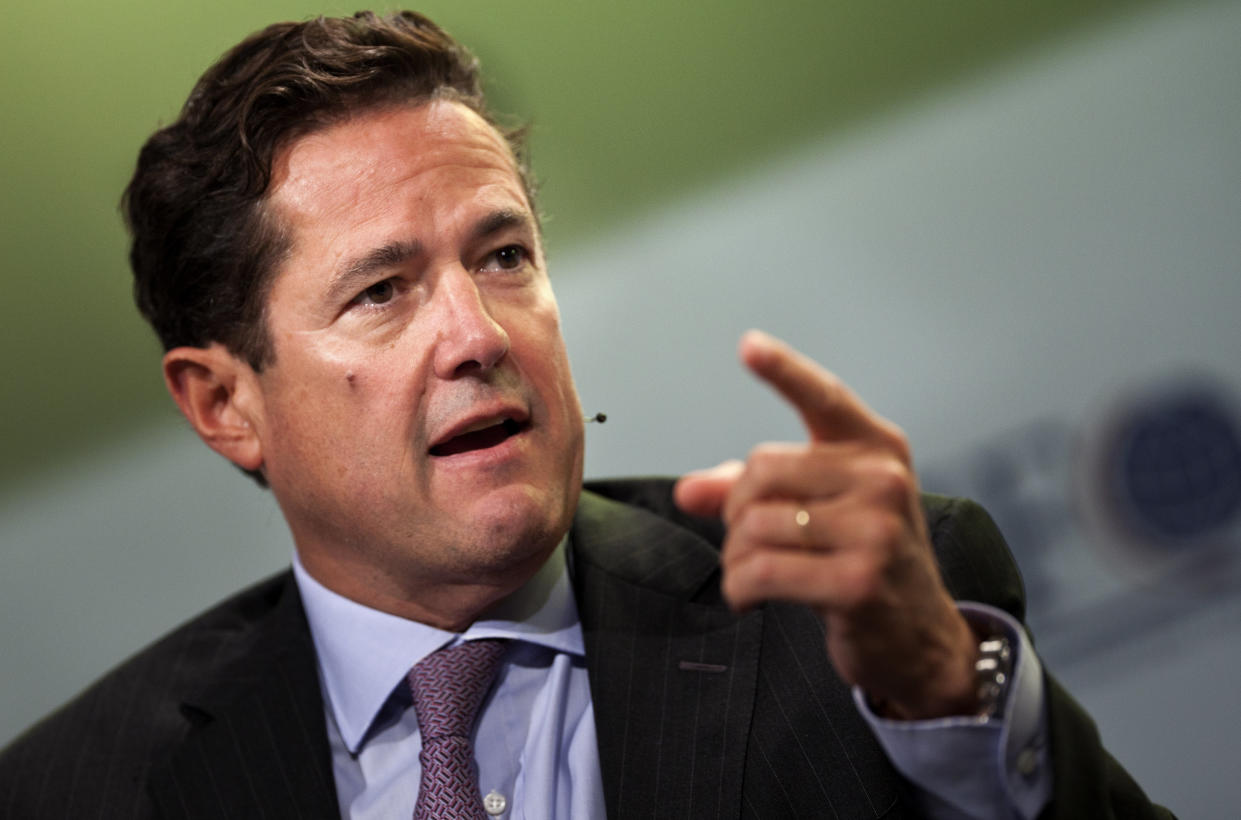Barclays sets aside £150m for Brexit uncertainty

Barclays (BARC.L) took a £150m ($195m) charge in the final three months of 2018 for UK economic uncertainty amid Brexit worries, the bank said on Thursday.
Barclays said in its full-year and fourth quarter results that it had set aside the sum “for the impact of the anticipated economic uncertainty in the UK.”
“With the uncertainty of Brexit over the next couple of weeks, I think now is the time to be prudent,” CEO Jes Staley told reporters on a call on Thursday morning.
HSBC this week said it had set aside £126m to cover possible Brexit costs while Royal Bank of Scotland (RBS.L) has said it has set aside £100m for a similar purpose.
Barclays group finance director Tushar Morzaria told reporters that Barclays’ provision was based on the Bank of England’s forecast of a growth slowdown this year. Earlier this month the central bank cut its forecast for GDP growth this year from 1.7% to 1.2%.
“If we don’t see the slowdown, if the economy does better, then of course we would end up releasing that provision,” Morzaria said.
“Credit conditions in the UK don’t reflect any signs of stress. Our delinquency stats are almost at all-time lows. We’re happy to continue lending to consumers. But we are in uncertain times so we just need to be prudent.”
Earlier this month, the chairman of Barclays’ UK bank said the lender has already spent between £100m and £200m preparing for Brexit. Barclays has transferred around £150bn of assets to its Irish subsidiary ahead of the UK’s exit from the EU.
‘A strong foundation’
Thursday’s results showed pre-tax profits at Barclays dipped by 1% to £3.49bn in 2018, against £3.54bn in 2017.
Barclays said the full-year figure was dragged lower by £2.2bn of conduct and litigation charges, including a £1.4bn settlement with US authorities over its sale of mortgage-backed securities in the lead-up to the financial crisis and £400m for payment protection insurance (PPI) mis-selling. With these excluded, underlying pre-tax profits lifted 20% to £5.7bn.
Barclays CEO Jes Staley said in a statement: “In the course of the year, having resolved major legacy issues and reduced the drag from low returning businesses, we started to see the earnings potential of the bank, as the strategy we have implemented began to deliver.
“The progress made on these key measures demonstrates that our plan is working and we have a strong foundation on which to achieve our returns targets for this year and next.”
Total income at the bank rose from £21bn in 2017 to £21.1bn. Return on equity bounced back from negative 3.6% to positive 3.6%.
Share buyback plans
Barclays has been under pressure from activist investor Edward Bramson, who wants the bank to shrink its investment banking division and return more money to shareholders.
Barclays increased its dividend from 3p to 6.5p and Staley said in his statement: “We will use the strong capital generation of the bank to return a greater proportion of those earnings to shareholders by way of dividends and to supplement those dividends with additional returns, including share buybacks.”
Morzaria declined to give any more details on the timing or size of any share buyback but said it would be dependant on the bank generating excess capital as legacy conduct issues are resolved.
Asked about Bramson’s push to shrink the investment bank, Staley told reporters: “Obviously we believe in remaining a bulge bracket investment bank, we’re gaining market share. I think the results for 2018 are supportive of the bank’s strategy.”
Pre-tax profit at the bank’s corporate and investment bank rose by 15% to £2.6bn in 2018.
Staley added that Bramson had not communicated a desire to cut back on the investment bank to Barclays’ executive team. Management are due to meet with Bramson’s company Sherborne Investors in March and Staley told reporters: “We want to engage with all of our shareholders. We’d love to understand in more depth what he thinks we should be doing.”
The bank’s annual report, published alongside the results, showed Staley was paid a total of £3.4m in 2018, down from £3.9m in 2017. £500,000 of Staley’s previous bonuses were clawed back following an investigation into his attempt to uncover a whistleblower. He still received an annual bonus of £1.1m for 2018.

